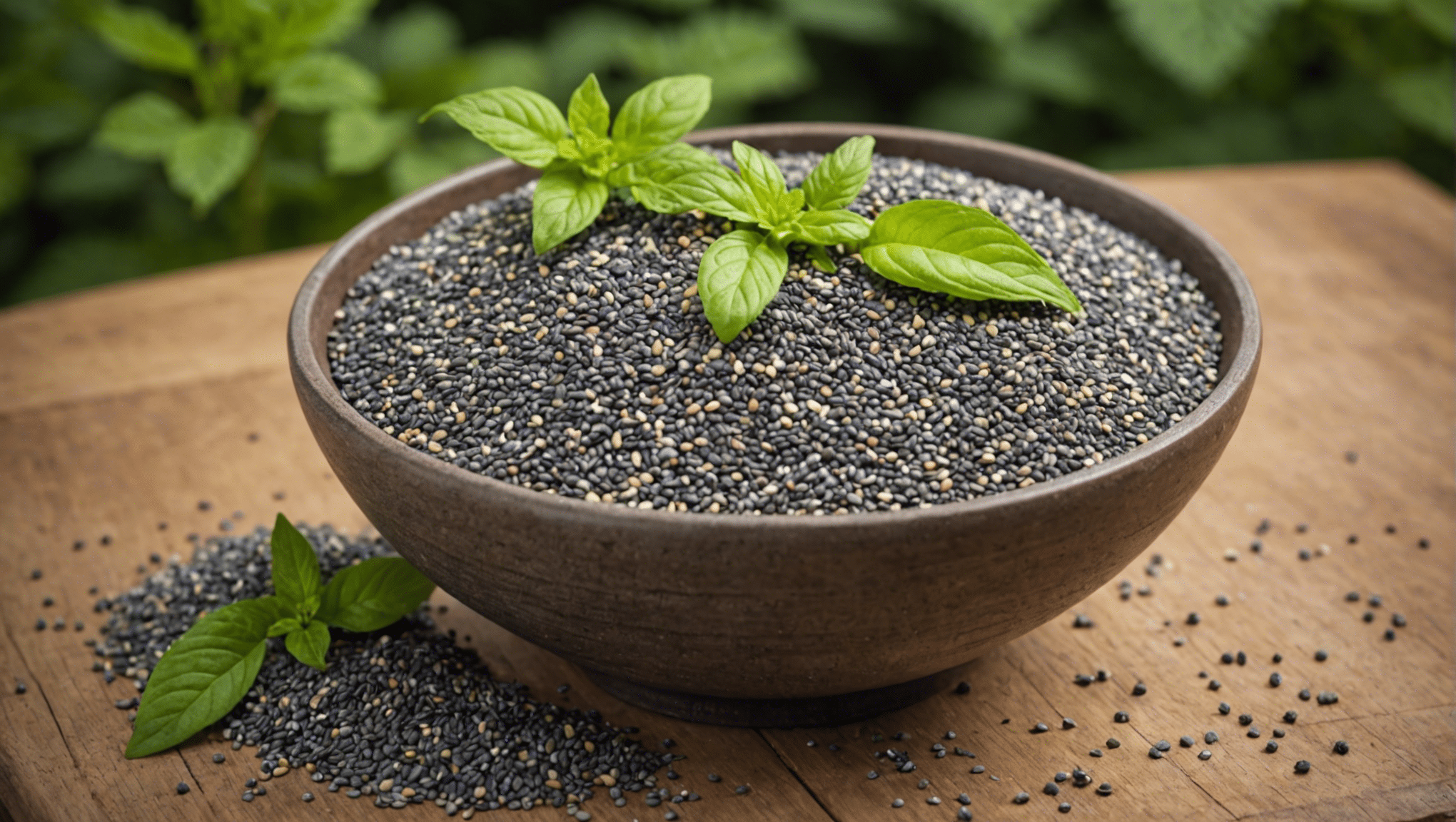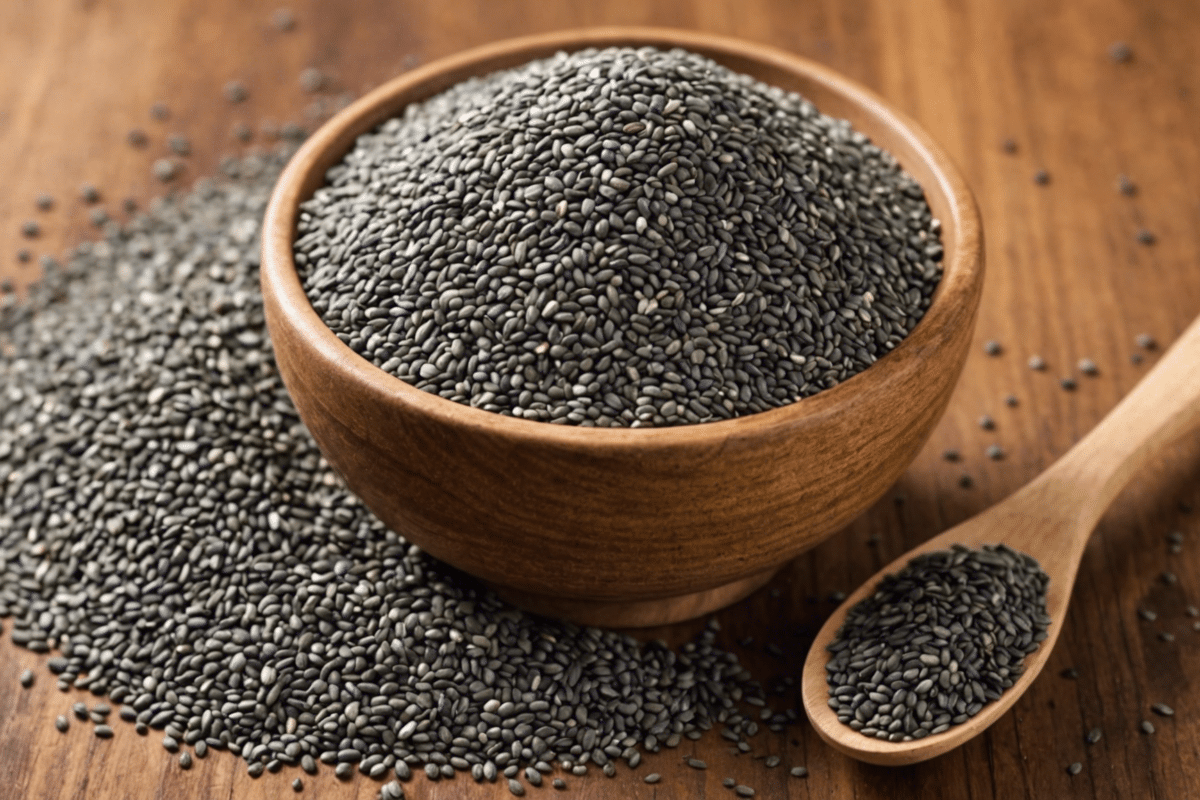The wonders of superfoods have captivated the attention of health enthusiasts around the world, and one tiny powerhouse has risen significantly in popularity—the chia seed. Known for its nutritional benefits and versatility in the kitchen, this ancient seed is not just a fad but a staple for those who seek to enrich their diet with natural goodness.
One might wonder about the lifespan of these nutritious specks. Like any natural product, they possess a finite shelf life, although it can be surprisingly lengthy.
Understanding the Shelf Life of Chia Seeds

Packaged in their natural state, chia seeds boast an impressive ability to remain consumable for extended periods. This longevity can be attributed to their high antioxidant content, which naturally extends their freshness by fending off rancidity. Proper storage is crucial in order to maximize this duration. Ideally, chia seeds should be kept in a cool, dry place away from direct sunlight. When stored appropriately, they can maintain their quality for years.
Indicators of Freshness and Quality
To ensure the chia seeds one incorporates into their diet are of the highest quality, it’s essential to recognize signs of freshness. Fresh chia seeds have a mild, nutty flavor and should be devoid of any off smells or tastes which could indicate spoilage. Another marker of quality is their appearance—healthy chia seeds are shiny and boast a rich, dark color.
In contrast, seeds that have passed their prime will often develop an unpleasant, bitter taste and may exhibit a dull appearance or a sticky texture when soaked. At the first hint of these characteristics, it’s advisable to discard the seeds, as their nutritional value may have diminished.
Maximizing the Lifespan of Your Chia Seeds
To enjoy the benefits that chia seeds offer for as long as possible, consider the following storage tips:
- Avoid heat and moisture: Keep chia seeds in an airtight container to protect them from heat, moisture, and air, which can accelerate spoilage.
- Choose the right container: Glass or metal containers with tight-fitting lids are preferable to plastic for long-term storage.
- Refrigeration: For extended storage beyond a pantry shelf life, refrigerating or freezing chia seeds can help preserve their freshness.
- Bulk buying: While purchasing in bulk can be cost-effective, make sure to transfer the seeds to an airtight container to maintain their quality.
By adhering to these storage tips, the shelf life of chia seeds can be significantly extended, ensuring they retain their potent nutritional profile.
Incorporating Chia Seeds into a Healthy Diet
Given their health-promoting properties, chia seeds are an exceptional addition to any diet. They are rich in fiber, protein, omega-3 fatty acids, and various micronutrients, making them not just a food but a potent dietary supplement. Integrating them into daily meals can be as simple as sprinkling them over cereal, blending them into smoothies, or baking them into bread.
Moreover, chia seeds function as an egg substitute in vegan recipes, owing to their gel-forming ability when soaked in water. This particular quality also contributes to their usefulness as thickeners in soups and gravies. With such versatility, they cater to a wide array of culinary applications.
Enhancing Health with Chia Seeds
Beyond their culinary uses, chia seeds are esteemed for their potential to support overall health. They have been linked to improved cardiovascular health, digestion, and even weight management. Additionally, as a plant-based source of protein, they are an excellent food choice for vegetarians and vegans looking to diversify their protein intake.
Regular consumption of chia seeds is also associated with a healthy gut microbiome, thanks to their prebiotic fiber content, which aids in nourishing beneficial gut bacteria. Combined with their inherent antioxidants, chia seeds emerge as a well-rounded superfood capable of bolstering one’s health regimen.
FAQs on Chia Seeds
Q: Can chia seeds go bad?
A: Yes, although they have a long shelf life, chia seeds can go bad if not stored correctly or if kept beyond their prime.
Q: How can I tell if my chia seeds have expired?
A: Check for signs like a rancid smell, a bitter taste, or a change in appearance, such as a dull color or a sticky texture when soaked.
Q: Are there any health risks associated with consuming expired chia seeds?
A: While eating slightly stale chia seeds might not cause harm, consuming rancid seeds can expose one to harmful free radicals, which are detrimental to health.
Q: Do I need to refrigerate chia seeds?
A: Refrigeration is not mandatory but can extend their shelf life, especially if you live in a warm climate or have a large quantity that you can’t use quickly.
Cherishing the multifaceted benefits of chia seeds begins with understanding their life cycle and ensuring they remain a healthful addition to various recipes and snacks. Proper storage and attention to freshness can help maintain the integrity of these remarkable seeds, allowing health-conscious individuals to leverage the ancient wisdom of using chia to boost well-being.












